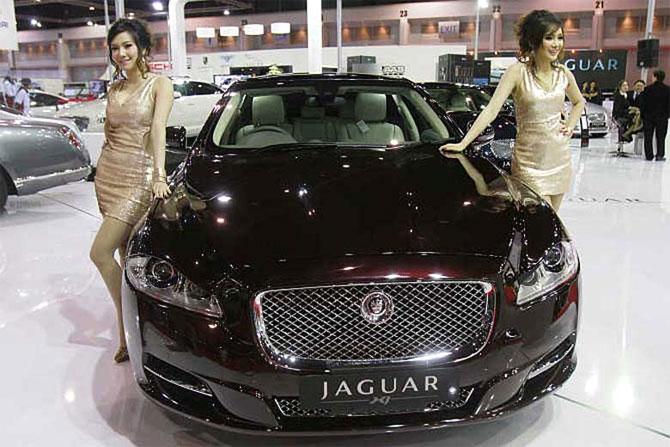The initial tests will involve vehicle-to-vehicle and vehicle-to-infrastructure communications technologies that will allow cars to 'talk' to each other and roadside signs, overhead gantries and traffic lights

Tata Motors-owned Jaguar Land Rover (JLR) is all set to start testing connected, autonomous and self-driving cars on UK roads, with a fleet of 100 to be produced over the next four years.
The first of such driverless cars will hit UK streets later this year, the company said in a statement.
"Our connected and automated technology could help improve traffic flow, cut congestion and reduce the potential for accidents," said Tony Harper, JLR's head of research.
The initial tests will involve vehicle-to-vehicle and vehicle-to-infrastructure communications technologies that will allow cars to "talk" to each other and roadside signs, overhead gantries and traffic lights.
The plans, as part of the "UK-CITE" or UK Connected Intelligent Transport Environment project, was announced by JLR earlier this year to create the first test route capable of testing next-generation vehicle technologies.
It involves the creation of a new "living laboratory" aimed at developing "Connected and Autonomous Vehicle" (CAV) technologies with the help of a new CAV test corridor, which includes 66 km of roads around Coventry and Solihull in the West Midlands, to evaluate new systems in real-world driving conditions.
"This real-life laboratory will allow JLR's research team and project partners to test new connected and autonomous vehicle technologies on five different types of roads and junctions. Similar research corridors already exist in other parts of Europe so this test route is exactly the sort of innovation infrastructure the UK needs to compete globally," said Wolfgang Epple, director of research and technology at JLR.
"The connected and autonomous vehicle features we will be testing will improve road safety, enhance the driving experience, reduce the potential for traffic jams and improve traffic flow. These technologies will also help us meet the increasing customer demand for connected services whilst on the move," Epple added.
New roadside communications equipment will be installed along the route during the three-year UK-CITE project to enable the testing of a fleet of up to 100 connected and highly automated cars, including five JLR research vehicles.
This fleet will test a range of different communication technologies that could share information at very high speeds between cars and between cars and roadside infrastructure, including traffic lights and overhead gantries or flashing road signs used on UK highways.
Photograph: Reuters






